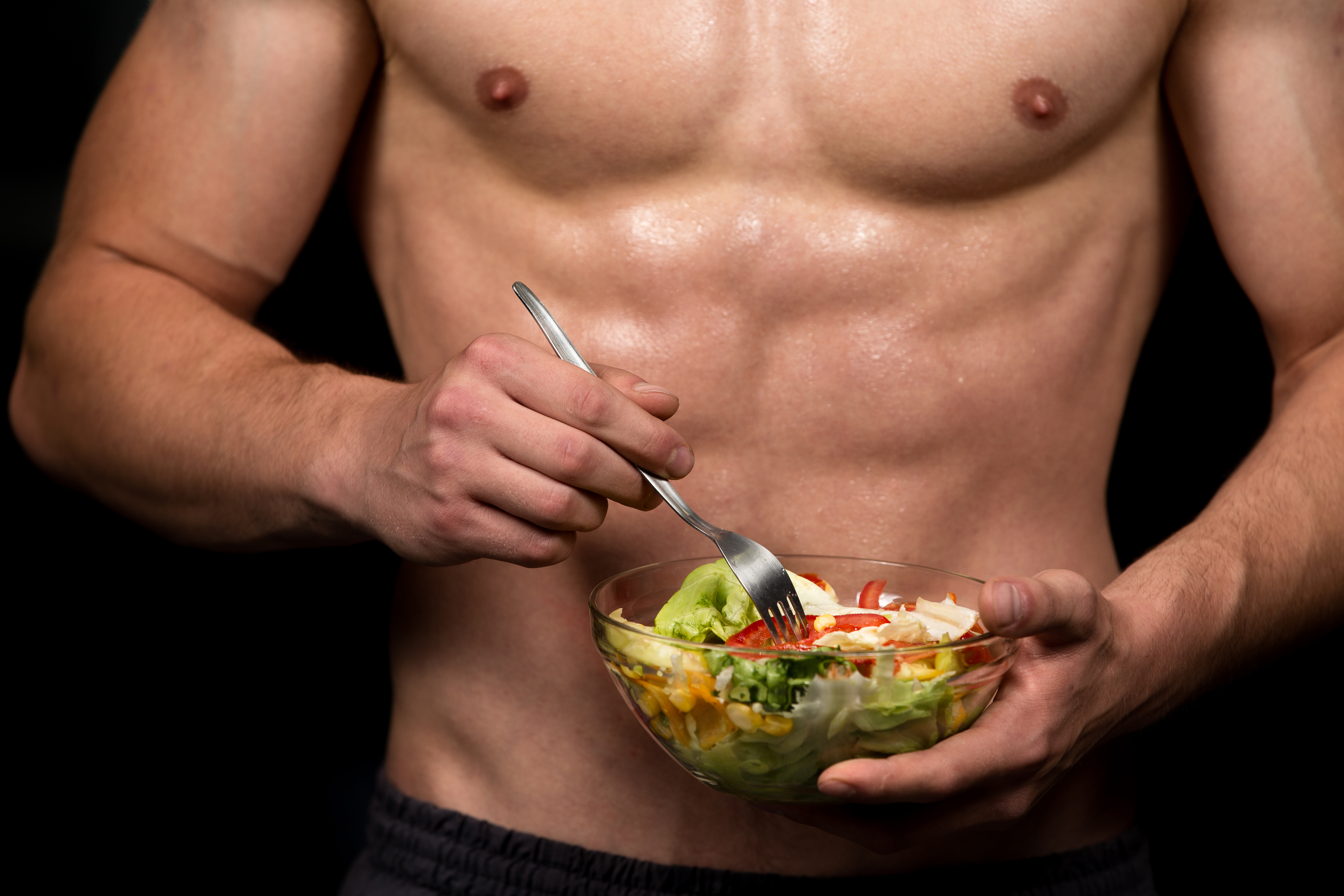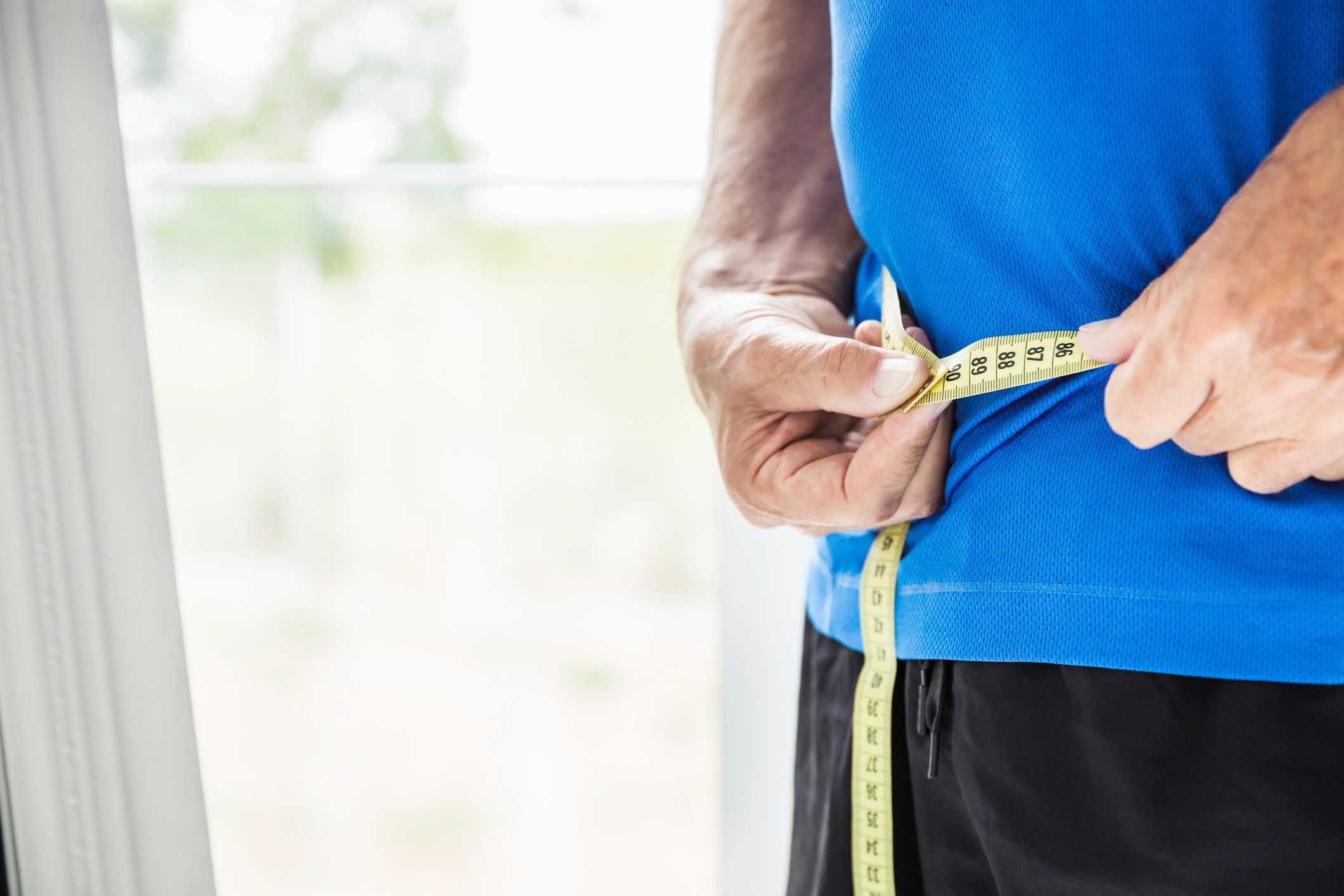Many people want to build muscle and lose weight for an improved physique, but the goals can be a bit contradicting. Typically, you need to be in a calorie deficit to lose weight and a calorie surplus to build muscle. So, can you build muscle in a caloric deficit?
In this article, we will go over exactly what a calorie deficit is, what contributes to muscle gains, tips for a successful recomp, and more!
What is a calorie deficit?

A calorie deficit occurs when you consume fewer calories than your body burns in a day. This balance is essential for weight loss because your body taps into stored energy, which is usually your fat stores, to make up the difference. The calories your body uses daily are determined by three main factors. According to NIH, these are your “resting metabolic rate, or resting energy expenditure (REE); the thermic effect of food (TEF), also referred to as diet-induced thermogenesis (DIT); and physical activity.”
To create a calorie deficit, you can reduce your calorie intake, increase your physical activity, or do both. However, the size of the deficit matters. A moderate calorie deficit of about 200 to 400 calories is generally recommended for sustainable weight loss, as overly restrictive diets can lead to muscle loss, fatigue, and slowed metabolism. For those aiming to build muscle in a calorie deficit, maintaining proper nutrition, especially when it comes to protein, is key to preserving muscle while shedding fat.
What contributes to muscle gains?

Muscle gains are influenced by a combination of factors that work together to stimulate muscle growth. The most critical contributors include progressive overload, protein intake, recovery, and hormonal balance.
Progressive overload, achieved by consistently challenging your muscles with heavier weights or increased intensity, signals the body to adapt by building stronger and larger muscle fibers. Adequate protein intake is equally vital, as proteins provide the amino acids necessary for muscle repair and growth. A daily protein intake of about 1.6 to 2.2 grams per kilogram of body weight is recommended for optimal muscle-building results.
Recovery also plays a key role. Rest periods between workouts and quality sleep allow muscles to repair and grow. Overtraining without sufficient recovery can hinder progress. Lastly, hormonal factors such as testosterone, growth hormone, and insulin-like growth factor-1 (IGF-1) support the muscle-building process by promoting protein synthesis and tissue repair.
Can you build muscle in a calorie deficit?

Yes, it is possible to build muscle in a calorie deficit, but it depends on several factors, including your training experience, diet quality, and body composition. Genetics could also be a determinant to a certain degree.
Building muscle requires resistance training and protein synthesis, while a calorie deficit involves consuming fewer calories than your body needs, leading to fat loss. Balancing these two goals can be challenging but achievable under specific circumstances.
Beginners and individuals returning to training after a break often experience “newbie gains,” where muscle growth occurs even in a deficit due to their body’s heightened response to resistance training. People with higher body fat percentages may also build muscle while losing fat, as stored energy can support muscle-building processes.
To maximize your growth, prioritize consuming sufficient protein and follow a structured strength-training program that integrates progressive overload and recovery. While progress may be slower than in a calorie surplus, building muscle in a deficit is still possible.
Can you lose fat while maintaining muscle?

Losing fat while maintaining muscle is achievable but requires a strategic approach. When in a calorie deficit, the body lacks the energy it needs from food and turns to stored fat for fuel. However, without proper nutrition and training, muscle mass can also be lost during this process. To minimize muscle loss, it’s essential to prioritize resistance training and consume enough protein on a daily basis. Strength training signals your body to preserve muscle tissue, even in a calorie deficit, while protein supports muscle repair and growth.
The timing and distribution of protein intake can also play a role. Eating high-protein meals evenly spaced throughout the day helps maintain muscle protein synthesis. Additionally, aiming for a moderate calorie deficit rather than an aggressive one allows for gradual fat loss while preserving muscle. To increase your chances of maintaining what muscle you do have, also practice stress management and get enough sleep.
Tips for the ultimate body recomp

Prioritize protein
A high-protein diet is critical for muscle growth during a calorie deficit. Aim for at least 1.6 grams of protein per kilogram of body weight daily. Protein preserves muscle tissue and supports recovery after workouts. Include lean meats, fish, eggs, dairy, and plant-based sources like tofu and lentils in your meals.
Lift heavy and train smart
Focus on resistance training with compound movements like military presses, squats, deadlifts, and pull-ups. These exercises recruit multiple muscle groups, maximizing your training efficiency. Stick to progressive overload by gradually increasing weight or reps to continually challenge your muscles.
Monitor calories and macros
Achieving a calorie deficit while fueling your body for workouts requires precise tracking. Use a food journal or app to ensure you’re eating fewer calories than you burn, but not so few that it hinders performance or recovery. Balance your macros to maintain energy and muscle growth.
Frequently asked questions

How many calories are needed to gain muscle?
To gain muscle, aim for a calorie surplus of 250 to 500 calories above your maintenance level. This ensures you have enough energy for muscle growth without gaining excess fat. Your specific needs depend on factors like age, weight, activity level, and training intensity, so you may need to adjust a few times initially to find the right number for you.
Can you build muscle in a 500-calorie deficit?
Yes, you can build muscle in a 500-calorie deficit, but it’s quite challenging and depends on factors like your training experience, protein intake, and workout quality. Beginners or individuals returning to training often see the best results due to “newbie gains.” To maximize muscle growth in a deficit, prioritize high-protein meals, focus on strength training with progressive overload, and ensure adequate recovery through quality sleep and stress management.
Can you build muscle on 1,200 calories a day?
Building muscle on 1,200 calories a day is extremely difficult for most people, as this intake is typically too low to provide the energy and nutrients needed for muscle growth or even maintaining health overall. Adequate protein and a calorie surplus make building muscle much easier, and 1,200 calories may not meet these requirements, especially for active individuals.




